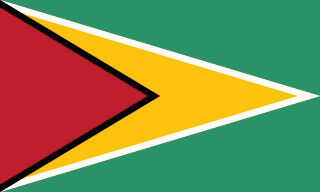Tokyo Olympics may refer to:

This article includes lists of all Olympic medalists since 1896, organized by each Olympic sport or discipline, and also by Olympiad.

The Summer Olympic Games, also known as the Games of the Olympiad, is a major international multi-sport event normally held once every four years. The inaugural Games took place in 1896 in Athens, Greece, and the 2024 Summer Olympics was held in 2024 in Paris, France. This was the first international multi-sport event of its kind, organized by the International Olympic Committee (IOC) founded by Pierre de Coubertin. The tradition of awarding medals began in 1904; in each Olympic event, gold medals are awarded for first place, silver medals for second place, and bronze medals for third place. The Winter Olympic Games were created out of the success of the Summer Olympic Games, which are regarded as the largest and most prestigious multi-sport international event in the world.

The 1964 Summer Olympics, officially the Games of the XVIII Olympiad and commonly known as Tokyo 1964, were an international multi-sport event held from 10 to 24 October 1964 in Tokyo, Japan. Tokyo had been awarded the organization of the 1940 Summer Olympics, but this honor was subsequently passed to Helsinki due to Japan's invasion of China, before ultimately being cancelled due to World War II. Tokyo was chosen as the host city during the 55th IOC Session in West Germany on 26 May 1959.

The 1940 Summer Olympics, officially known as the Games of the XII Olympiad, was a planned international multi-sport event scheduled to have been held from 21 September to 6 October 1940, in Tokyo City, Japan, and later rescheduled for 20 July to 4 August 1940, in Helsinki, Finland following the outbreak of the Second Sino-Japanese War in 1937. They were ultimately cancelled because of World War II alongside the 1940 Winter Olympics in Sapporo, Japan, and were the third games to be cancelled due to war.

An olympiad is a period of four years, particularly those associated with the ancient and modern Olympic Games.
Los Angeles Olympics may refer to three different Olympic Games held or to be held in Los Angeles:

Baseball at the Summer Olympics unofficially debuted at the 1900 Summer Olympics in Paris, and was first contested as a demonstration sport at the 1912 Summer Olympics in Stockholm. It became an official Olympic sport at the 1992 Summer Olympics in Barcelona, then was played at each Olympiad through the 2008 Summer Olympics in Beijing. The sport was then dropped from the Summer Olympic program, until being revived for the 2020 Summer Olympics in Tokyo for a single appearance. It is next expected to be part of the 2028 Summer Olympics in Los Angeles.
Beijing Olympics may refer to:

Judo was first included in the Summer Olympic Games at the 1964 Games in Tokyo, Japan. After not being included in 1968, judo has been an Olympic sport in each Olympiad since then. Only male judoka participated until the 1988 Summer Olympics, when women's judo was organized as a demonstration sport. Women judoka were first awarded medals at the 1992 Summer Olympics.
1940 Olympics refers to both:

Sailing/Yachting is an Olympic sport starting from the Games of the 1st Olympiad (1896 Olympics in Athens Greece. With the exception of 1904 and the canceled 1916 Summer Olympics, sailing has always been included on the Olympic schedule. The Sailing program of 1964 consisted of a total of five sailing classes. For each class, seven races were scheduled; these took place from 12 to 23 October 1964 off the coast of Enoshima in Sagami Bay. The sailing was done on the triangular type Olympic courses.

Syria first participated at the Olympic Games in 1948. Syrian diver Zouheir Shourbagi, the sole competitor, placed 10th in the men's platform. Syria then missed the next four Olympiads. Syria returned to the Games in 1968, and has sent athletes to compete in all but one Summer Olympic Games, missing the 1976 Games. Syria has never participated in the Winter Olympic Games.

The Olympic Games ceremonies of the ancient Olympic Games were an integral part of the games; modern Olympic Games have opening, closing, and medal ceremonies. Some of the elements of the modern ceremonies date back to the ancient games from which the modern Olympics draw their ancestry. An example of this is the prominence of Greece in both the opening and closing ceremonies. During the 2004 Summer Olympics, the medal winners received a crown of olive branches, which was a direct reference to the ancient games, in which the victor's prize was an olive wreath. The various elements of ceremonies are mandated by the Olympic Charter, and cannot be changed by the host nation. Host nations are required to seek the approval of the International Olympic Committee (IOC) for ceremony elements, including the artistic portions of the opening and closing ceremonies.

Gymnastics at the 2020 Summer Olympics in Tokyo was held in three categories: artistic gymnastics, rhythmic gymnastics and trampolining. All gymnastics events were staged at the Olympic Gymnastic Centre, Tokyo in 2021.
Greek Olympics may refer to:
Alternate Olympics, Alternative Olympics, and similar may refer to:

Competition climbing made its Olympic debut at the 2020 Summer Olympics in Tokyo, Japan. Two events were held, one each for men and women. The format controversially consisted of one combined event with three disciplines: lead climbing, speed climbing and bouldering. The medals were determined based on best performance across all three disciplines. This format was previously tested at the 2018 Summer Youth Olympics. The Olympic code for sports climbing is CLB.

Guyana competed at the 2020 Summer Olympics in Tokyo. Originally scheduled to take place from 24 July to 9 August 2020, the Games were postponed to 23 July to 8 August 2021, because of the COVID-19 pandemic. It was the nation's eighteenth appearance at the Summer Olympics as an independent state, although it had previously represented in five other editions under the name British Guiana. Guyana joined the African-led boycott of the 1976 Summer Olympics in Montreal.